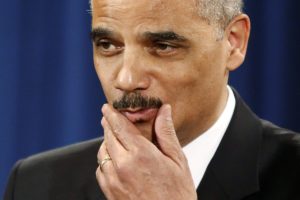When the videotape of journalist Daniel Pearl’s brutal murder was released in 2002, it was handed to an undercover FBI operative posing as a journalist. The move was ironic because Pearl’s captors originally said they believed the Wall Street Journal editor was actually a CIA agent.
Weeks before Pearl became a hostage, Editor & Publisher speculated on the risky and widespread use of journalist “covers” overseas, after Taliban defectors said they were approached by intelligence officers in Afghanistan pretending to be journalists.
According to the Committee to Protect Journalists, a total of 1,082 media members have been killed since 1992 (the first year statistics were kept). Of those killed, 715 were murdered, a quarter of them in the Middle East and mostly in Iraq since 2003.
Long before these statistics, however, if we are to believe the 1976 findings of the Church Committee, media manipulation and impersonation by the CIA and FBI was taking place. And although the CIA adopted regulations in 1977 banning the practice of using journalists, they did so with an “extraordinary circumstances” loophole, which didn’t come to light until 1996. The next year Congress passed the Intelligence Authorization Act, allowing the ban on use of journalists to be waived with notification to Congress and presidential approval.

The FBI operates under guidelines established by the Attorney General. This and related documents require thoughtful consideration before Bureau agents take fictitious or existing identities to advance an investigation, noting that doing so is “an intrusive law enforcement technique” that can raise legal issues and result in financial losses and diminished reputations.
Such cautions were not enough to prevent FBI agents in Washington state from posing as an Associated Press reporter in 2007 and creating a fake AP news story, which was placed on a fake AP-looking website and sent to a suspect.
The suspect, a male teen believed to be responsible for school bomb threats, clicked a link to review the article he believed was written about himself and unwittingly downloaded location-based malware so that the FBI could determine his location.
Shortly thereafter, the teen was found guilty. But, the ruse was exposed only days ago by the Electronic Frontier Foundation.
Given the backdrop of ongoing violence and the continued erosion of the unique press/public relationship by government, there’s little wonder the AP came out swinging.
In a letter to Attorney General Eric Holder, AP legal counsel Karen Kaiser said, “Any attempt by the government, whatever its motives, to falsely label its own messages as coming from the news media serves to undermine the vital distinction between the government and the press in society.”
Several additional news organizations have joined AP in calling on the government to forever ban the practice of journalist impersonation and to further disclose additional instances of the practice.
To my knowledge, the only government agency that has ever publicly denounced such identity theft is the U.S. Postal Service. That must change.
This column by Lynda Waddington originally published on Nov. 15, 2014. Photo credit: Jonathan Ernst/Reuters
